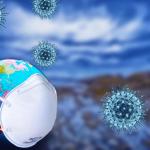Vaccines are meant to help, not harm. So you can imagine our surprise when we first heard of the intriguing term gaining popularity among the anti-vaccine crowd: turbo-cancer.
pandemic
Join Cameron English and Dr. Chuck Dinerstein on Episode 115 of the Science Dispatch podcast as they discuss:
A February 25
Join Cameron English and Dr. Chuck Dinerstein on Episode 91 of the Science Dispatch podcast as they discuss:
Join Cameron English and Dr. Chuck Dinerstein on Episode 89 of the Science Dispatch podcast as they discuss:
There have been more than 111 million cases of COVID-19 in the United States, which caused about 1.2 million deaths, a calamitous public health episode by any measure.
Vaccine expert Dr. Paul Offit joins Cameron English and Dr. Chuck Dinerstein on Episode 67 of the Science Dispatch podcast to answers these questions and discuss his new book:
Should the federal government pressure social media companies to censor scientific “disinformation”?
Armando Simón, a retired psychologist, attempted to rebut an
Join hosts Cameron English and Dr. Chuck Dinerstein as they break down these stories on Episode 49 of the Science Dispatch podcast:











